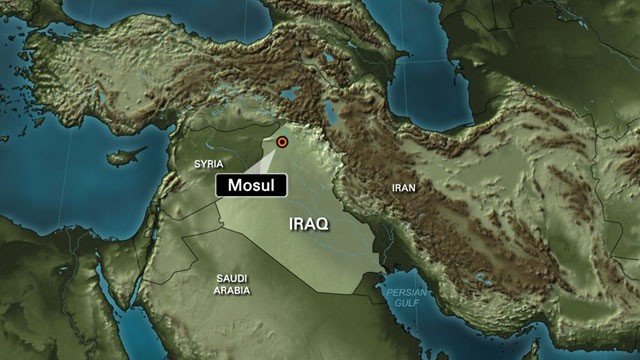
Paris, France | AFP |
A complex offensive is taking place to recapture Mosul, the Islamic State group’s last major stronghold in Iraq and the country’s second city.
Questions of timing
Prime Minister Haider al-Abadi announced Monday that operations to liberate Mosul had begun after already calling an operation to retake Nineveh province, of which Mosul is the capital, in March this year.
The timing of Abadi’s announcement is in line with predictions by Western officials, including US Chairman of the Joint Chiefs of Staff General Joe Dunford, that an offensive would be launched in October.
A key requirement was the cooperation of peshmerga forces from the autonomous Kurdish region. Their leader Massud Barzani said on Saturday that the time had come to begin operations.
Abadi remains on target to keep his promise that Mosul would be liberated in 2016 but it is still unclear when Iraqi forces will be in a position to move into the city proper.
Paramilitary forces known as the Hashed al-Shaabi (Popular Mobilisation) will also take part in fighting in the Mosul theatre. While they are ostensibly under Abadi’s control, the most powerful groups operate with a great deal of autonomy and with input from Tehran.
Baghdad decided to retake Fallujah, an IS-held city west of the capital, before moving on to the northern city of Mosul, and that operation was the main focus until its completion this summer.
Iraqi forces have since retaken the Qayyarah base, which will serve as a main supply and logistics hub for the Mosul operation, and have also recaptured Sharqat, an IS-held town that was a potential threat to their supply lines.
Many players
The battle for Mosul is expected to be difficult, involving street-to-street fighting with the 3,000-4,500 IS jihadists the coalition has estimated are in the area.
IS is faced with an array of forces: the US-led coalition, Iraqi soldiers, police and mainly Shiite Muslim Hashed al-Shaabi forces — and Kurdish peshmerga fighters.
This coalition of myriad and sometimes rival Iraqi forces will have to fight through IS defences — in some cases over distances of dozens of kilometres (miles) from their current positions — to reach the city.
The operation will be supported by the US-led coalition, while Iranian forces will work with some Shiite militia groups, and Turkey also has troops at a base near Mosul which it has declined to remove despite Baghdad’s demands that it do so.
The issue of the role of the Hashed al-Shaabi militia forces is a contentious one, and Sunni politicians oppose their entry into Sunni Arab Mosul.
Hashed forces may ultimately be diverted to retake the town of Tal Afar west of Mosul, giving them a role in the operation while keeping them out of the city.
There is also the contentious issue of post-Mosul territorial control, with Iraqi Kurdistan wanting to maintain control of areas that are claimed by both it and the federal government in Baghdad.
Humanitarian catastrophe feared
The Mosul offensive could affect more than one million people, according to the United Nations. These displaced people would come on top of some 3.38 million Iraqis who have already left their homes since January 2014.
The UN refugee agency has appealed for $584 million (520 million euros) to help those displaced, and has so far only received a part. Washington in mid-September announced aid of more than $181 million.
 The Independent Uganda: You get the Truth we Pay the Price
The Independent Uganda: You get the Truth we Pay the Price



